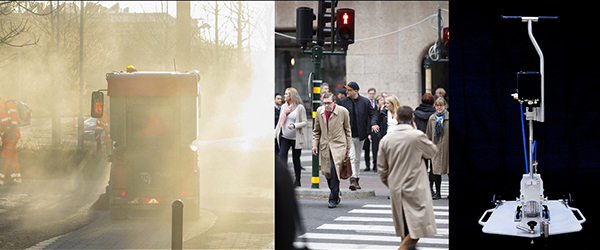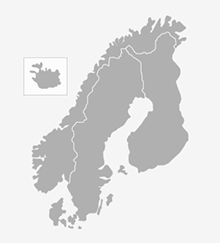The ability to sample and analyse road dust amounts and properties is vital to the effort to reduce levels of hazardous particles in our ambient air. The Swedish National Road and Transport Research Institute (VTI) has been performing such sampling for many years using the wet dust sampler (WDS), but now a number of countries are interested in VTI’s equipment and two were recently exported to Norway and Finland.

The Wet dust sampler from VTI is used to analyse road dust on streets. Photo: Andreas Schander
“It’s a major advantage if multiple countries use the same equipment and analyse dust in the same way, as we can then compare data from multiple countries and learn from one another”, said VTI researcher Mats Gustafsson.
Gustafsson has lengthy experience of sampling road dust using the WDS, a VTI-invented and -built, water-based device for sampling and analysing road dust.
WDS employs repeated, timed high-pressure washing of the sample surface followed by transfer of the sample into a bottle using compressed air. The sample can be analysed for its insoluble material content, particle size distribution, and chemical composition, as well as the quantity and composition of any water-soluble substances.
The sampler has been used since 2006 in numerous research and investigative projects focusing on the impact of road dust on air quality. The evolution of the dust deposits over the year in relation to traffic, meteorology and operational activities has been studied, contributing to a unique understanding of the properties and dynamics of dust, and of the factors that are important in reducing the impact of dust on air quality. Dust-sampling projects have been commissioned by government agencies, municipalities, and companies.
Contact:
 Mats Gustafsson
Mats Gustafsson
mats.gustafsson@vti.se
VTI, Sweden






Follow us: